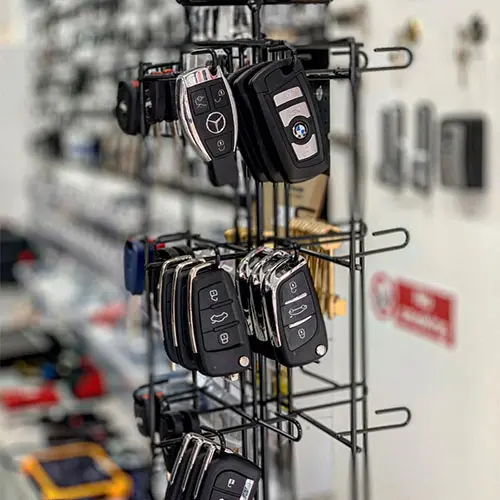
25
JuneWhat's The Job Market For Vehicle Lock Repairs Professionals Like?
Vehicle Lock Repairs: Ensuring Safety and Security
In a world where vehicle theft and burglaries are prevalent, guaranteeing that a vehicle's locking system is operating smoothly is important for both safety and security. vehicle Lock Repairs (https://www.clicksproperty.com/) include a series of repairs and upkeep procedures that resolve issues associated to locks and ignition systems. This short article offers an introduction of the types of vehicle lock problems, indications of malfunction, repair choices, and preventative steps while also responding to some frequently asked questions.

Understanding Vehicle Lock Mechanisms
Vehicle locks utilize various mechanisms that differ among makes and designs. The primary parts of a vehicle lock system normally consist of:
- Key Cylinder: The part where the key is inserted.
- Locking Bolt: Engages and protects the door when locked.
- Lock Assembly: Holds the door closed however can be disengaged when opening.
- Ignition Lock: Secures the ignition system of the vehicle.
Each of these components can be prone to wear and tear or unanticipated failure, resulting in lock-related issues.
| Element | Description | Common Issues |
|---|---|---|
| Key Cylinder | Accepts the key to run the lock | Key jams, problem turning the key |
| Locking Bolt | System that protects the door when locked | Bolt misalignment, stuck bolt |
| Latch Assembly | Engages and disengages to protect the door | Broken lock, improper function |
| Ignition Lock | Secures the ignition to begin the vehicle | Key will not turn, ignition failure |
Signs of Lock Malfunction
Vehicle owners ought to be watchful for signs that their lock systems may be failing. Some typical indicators of lock problems consist of:
- Difficulty Inserting Key: If the key does not easily suit the cylinder, there might be debris inside or wear occurring within the cylinder.
- Stuck Key: A key that gets stuck while turning can show internal damage or misalignment.
- Locked Door Will Not Unlock: If a door refuses to unlock, it might be due to a malfunctioning locking bolt or latch.
- Uncommon Noises: Grinding or clicking noises while attempting to lock or unlock the door can indicate structural problems in the locking mechanism.
- Faulty Remote: If the key fob is not responding, the problem may lie not only with the fob's battery however could likewise point towards issues in the lock receiver in the vehicle.
Repairing Vehicle Locks
Dealing with a vehicle lock issue can be complicated, and while some repairs can be tackled at home, others might need expert assistance.
Do it yourself Repairs
Some minor lock concerns can be fixed without the assistance of a mechanic. Here are a couple of examples:
- Lubrication: Regularly apply a silicone-based lubricant to key cylinders and locks to prevent sticking.
- Tidy the Key: Dirt on the key can trigger jamming in the key cylinder. Clean keys with rubbing alcohol to get rid of dirt or residue.
- Inspect the Battery in the Remote: For remote key fobs, verify that the battery is practical by checking it with another vehicle or having it replaced.
Expert Repairs
For more considerable problems, expert repairs might be essential. Common professional services consist of:
- Key Replacement: If the key is lost or harmed, a locksmith can create a brand-new key or rekey the lock.
- Reprogramming Key Fobs: Sometimes the remote requirements to be reprogrammed to sync with the vehicle's receiver.
- Comprehensive Lock Replacement: In serious cases, entire locking mechanisms might require replacement due to harm or use.
Preventative Measures
To extend the lifespan of vehicle locks and avoid concerns, consider the following preventative measures:
- Regular Maintenance: Periodic examination and lubrication of locks can prevent future breakdowns.
- Avoid Excessive Force: Handling keys and doors carefully can minimize use on locking mechanisms.
- Right Away Address Issues: If issues occur, resolving them promptly can avoid more damage and more expensive repairs.
Regularly Asked Questions
Q: How do I understand if my vehicle lock needs repair?A: Look for signs such as trouble inserting the key, weird noises, or the door failing to lock or unlock. Q: Can I repair a stuck lock myself?A: Simple issues such as lubrication might
be resolved at home; however, complicated issues typically need professionals. Q: How much does it cost to repair a vehicle lock?A: Costs can differ widely based on the concern and vehicle type. Basic repairs may begin around ₤ 50, whereas lock replacements can cost numerous hundred dollars. Q: What ought to I do if I lose my car key?A: Contact a locksmith or your dealership for a replacement key. They might require your vehicle identification number (VIN )to create a brand-new key. Q: Are aftermarket keys as trusted as initial keys?A: Aftermarket keys can be less dependable than OEM keys, as they might not abide by the very same specifications and quality standards.
Preserving the integrity of a vehicle's lock system is
important for overall security and safety. By recognizing the signs of a malfunction, performing suitable repairs, and carrying out preventative steps, vehicle owners can avoid the hassle and potential risks connected with lock problems. Guaranteeing that locks operate appropriately improves not only the vehicle's safety but also the comfort of its owner.


Reviews